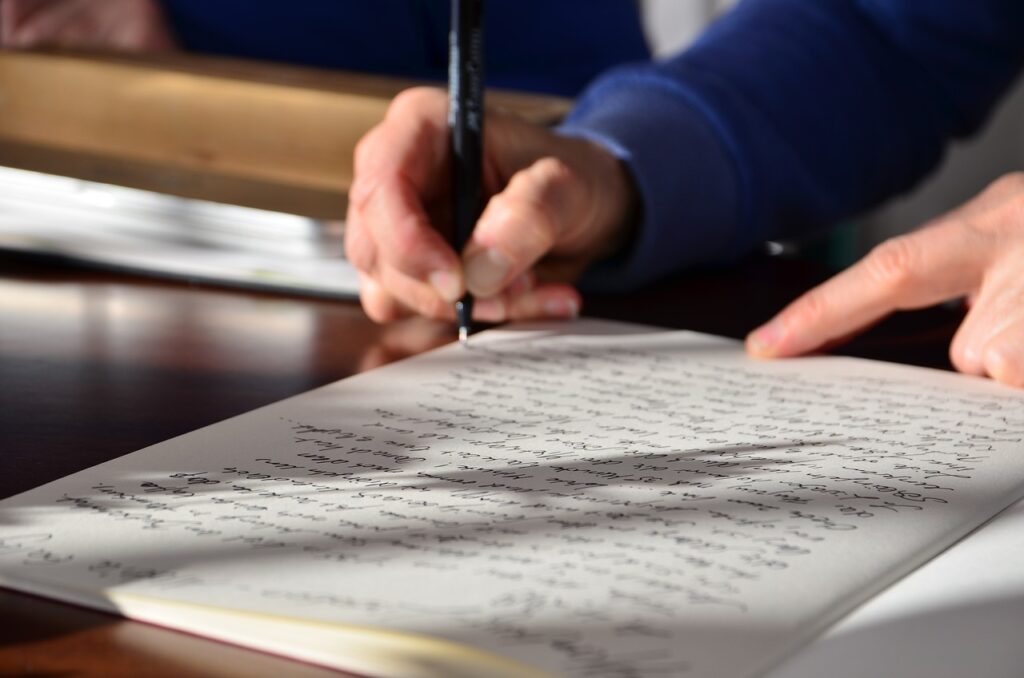
Are you tired of staring at a blank page, unsure where to start your essay? Do you struggle to convey the message you want clearly and concisely? Fear not. In this post, we’ll share our top tips for mastering the art of essay writing. Whether you’re a seasoned writer or just starting out, these techniques will help take your essays from average to exceptional. So grab a pen and paper (or keyboard) and get ready to elevate your writing game.
Understand the Assignment
Any essay introduction course will teach that you thoroughly understand the essay assignment before you begin writing. Read through the prompt or question several times, and identify keywords or phrases that will help you know what your professor is asking of you. Make sure to note any due dates and specific criteria for the paper. If you still don’t understand the assignment, ask your professor for clarification before writing.
Plan Your Essay
A well-structured essay starts with a solid plan. Begin by brainstorming ideas and creating an outline that organizes your thoughts and arguments. Identify your main points and supporting evidence for each. A clear outline will serve as a roadmap for your essay, ensuring a logical flow and coherence in your writing. Remember to allocate sufficient research, writing, and revising time during your planning stage.
Conduct Thorough Research
Research is the backbone of a high-quality essay. Gather relevant information from reliable sources to support your arguments and provide a solid foundation for your writing. Utilize academic databases, books, scholarly articles, and reputable websites to find credible and up-to-date information. Take notes and organize your research materials to make it easier to refer back to them during the writing process.
Craft a Strong Thesis Statement
A strong thesis statement is the heart of your essay. It encapsulates your main argument and sets the tone for the entire piece. Ensure your thesis statement is clear, concise, and compelling. It should guide your writing and provide a roadmap for your readers to follow. Revise and refine your thesis statement as needed throughout the writing process to ensure it accurately reflects the content of your essay.

Write with Clarity and Conciseness
When writing your essay, aim for clarity and conciseness. Use clear and straightforward language to communicate your ideas effectively. Avoid unnecessary jargon or complex sentence structures that may confuse your readers. Be concise in your writing, presenting your arguments and evidence in a succinct manner. Remember, quality is more important than quantity when it comes to essay writing.
Revise and Proofread
Never underestimate the power of revising and proofreading your essay. Take the time to review your work, making sure your ideas flow smoothly, and your sentences are error-free. Check for grammar, punctuation, and spelling mistakes. Consider reading your essay aloud to identify any awkward phrasing or unclear passages. Seek feedback from peers or teachers to gain different perspectives and make necessary improvements. By following these tips, you’ll be well-equipped to confidently and skill tackle your academic writing assignments. Remember to understand the assignment, plan your essay, conduct thorough research, craft a strong thesis statement, write with clarity and conciseness, and revise and proofread your work. Writing a high-quality essay is a process that requires practice and attention to detail. So, embrace the challenge, hone your writing skills, and …

 One common mistake students make when preparing for tests is not studying enough. This can result from procrastination or simply not understanding how much time is needed to prepare. Start studying two weeks before the test. It will give you enough time to review the material and identify areas where you need more help.
One common mistake students make when preparing for tests is not studying enough. This can result from procrastination or simply not understanding how much time is needed to prepare. Start studying two weeks before the test. It will give you enough time to review the material and identify areas where you need more help. Another mistake students make when preparing for tests is not reviewing their notes. It can result from taking unpleasant notes or simply forgetting to check them. To avoid this, try to make your notes clear and concise. Write key concepts and ideas, and don’t be afraid to use abbreviations.
Another mistake students make when preparing for tests is not reviewing their notes. It can result from taking unpleasant notes or simply forgetting to check them. To avoid this, try to make your notes clear and concise. Write key concepts and ideas, and don’t be afraid to use abbreviations.